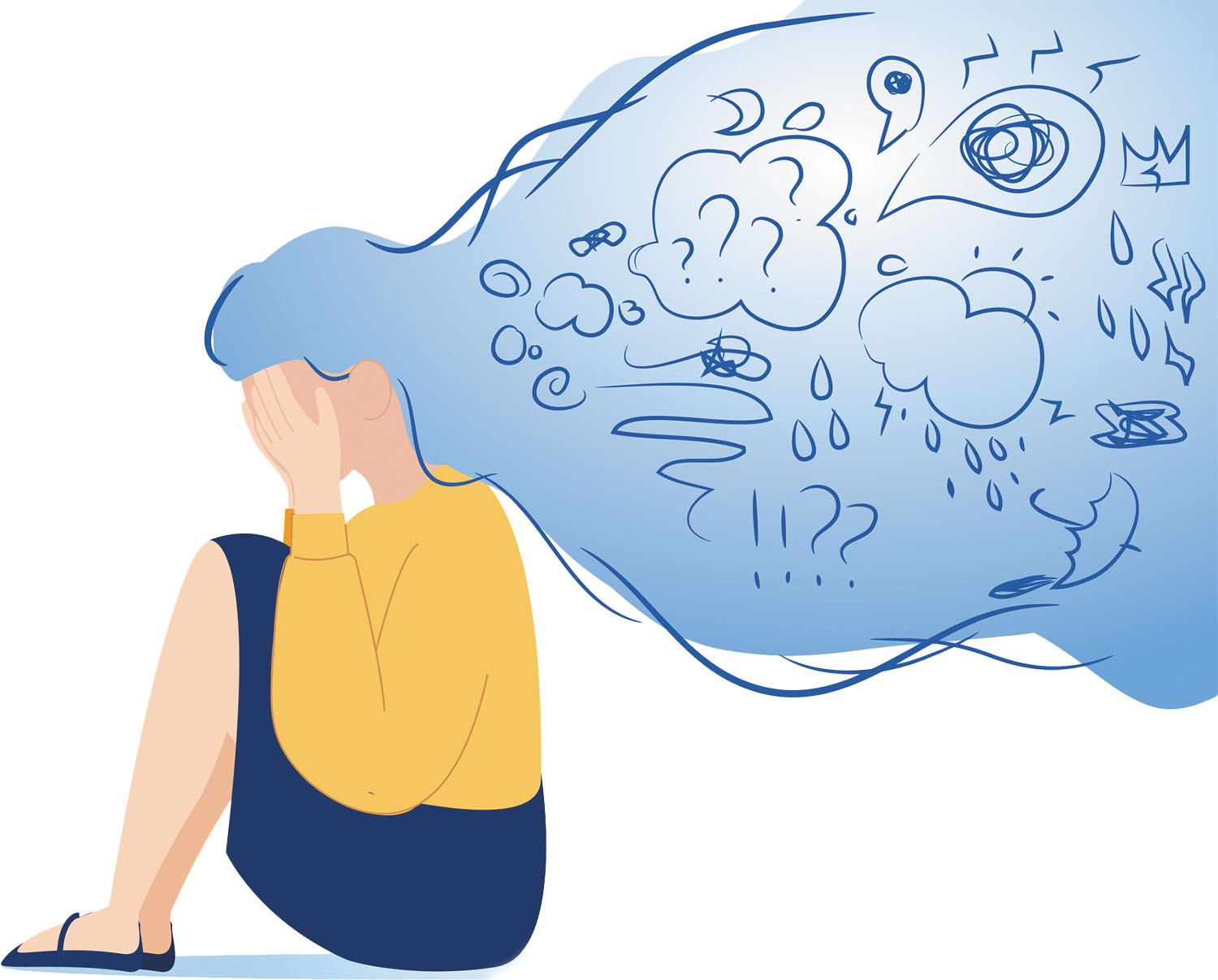
5 timeless habits for better health

What are the symptoms of prostate cancer?

Is your breakfast cereal healthy?

When pain signals an emergency: Symptoms you should never ignore

Does exercise give you energy?

Acupuncture for pain relief: How it works and what to expect

How to avoid jet lag: Tips for staying alert when you travel

Biofeedback therapy: How it works and how it can help relieve pain

Best vitamins and minerals for energy

Should you take probiotics with antibiotics?
Mental Health Archive
Articles
Doomscrolling dangers
Doomscrolling is the habit of constantly scrolling online news headlines, which often blare bad news. Doomscrolling became prominent during the pandemic. It can lead to a wide range of physical and mental health effects, including headaches, muscle tension, elevated blood pressure, and existential anxiety. To offset doomscrolling, people can create boundaries around using devices that include keeping phones off their nightstand, opting out of digital notifications, focusing on local news, and asking others not to send you depressing news items.
Try this: Take it outside
The 1,000 Hours Outside challenge can motivate people to spend more time outdoors by trying to accumulate 1,000 hours of outdoor time over a year.
Music as medicine
Music therapy uses personally tailored interventions such as singing, songwriting, playing an instrument, or moving to the beat to help people with a variety of health conditions manage disease symptoms and treatment side effects. Research suggests music therapy can curb stress, soothe pain, promote sleep, reduce anxiety, and improve memory and focus. People interested in accessing music therapy can ask their health care team or hospital for a referral, or look for a music therapist through the American Music Therapy Association.
When fear strikes the heart: Post-traumatic stress disorder
People with post-traumatic stress disorder (PTSD) are especially vulnerable to cardiovascular problems, including a 40% increased risk of heart attack. The amygdala, a brain structure involved in processing anxiety, fear, and stress, is overactive in people with PTSD. But these people also have decreased activity in the ventromedial prefrontal cortex, which is responsible for regulating emotions and dampening the fear response. This brain activity imbalance triggers chronic activation of the body's "fight-or-flight" response. The resulting physiological changes appear to underlie the development of atherosclerosis.
Tackling the top stressors for dementia caregivers
Caring for a person with dementia is physically, emotionally, logistically, and financially demanding. Caregivers can benefit from numerous services, such as caregiver support groups; respite care; and dementia care navigators, such as the local Area Agency on Aging (which can provide a long list of resources) or a local hospital dementia care program. It can also help to speak to doctors about consolidating appointments for the person with dementia and to reach out to family and friends to ask for assistance.
Living your best life
As people face their mortality, they often focus on how to live their best life in their remaining time. Two Harvard experts—Dr. Howard LeWine and Dr. Anthony Komaroff—share advice on how they are achieving this during their golden years. Some of their suggestions include embracing the natural changes of aging, doing inspiring activities, learning to live in the moment, and finding one's sense of purpose.
Depression more likely during perimenopause than before or after
A 2024 study suggests that women in perimenopause are significantly more likely to experience depression than either before or after this stage.
Optimism may slow women's age‑related physical decline
A 2024 study suggests that optimism may help women stave off age-related physical decline.
Recognizing and easing the physical symptoms of anxiety
Anxiety can produce physical symptoms, such as headaches, stomach upset, and tightness in the chest. Sometimes this sets up a vicious cycle, in which anxiety triggers physical symptoms, and the symptoms magnify anxiety, which makes them even worse. Doing distracting tasks or relaxation exercises can help break this cycle. People should seek professional help if symptoms can't be controlled.

5 timeless habits for better health

What are the symptoms of prostate cancer?

Is your breakfast cereal healthy?

When pain signals an emergency: Symptoms you should never ignore

Does exercise give you energy?

Acupuncture for pain relief: How it works and what to expect

How to avoid jet lag: Tips for staying alert when you travel

Biofeedback therapy: How it works and how it can help relieve pain

Best vitamins and minerals for energy

Should you take probiotics with antibiotics?
Free Healthbeat Signup
Get the latest in health news delivered to your inbox!
Sign Up











